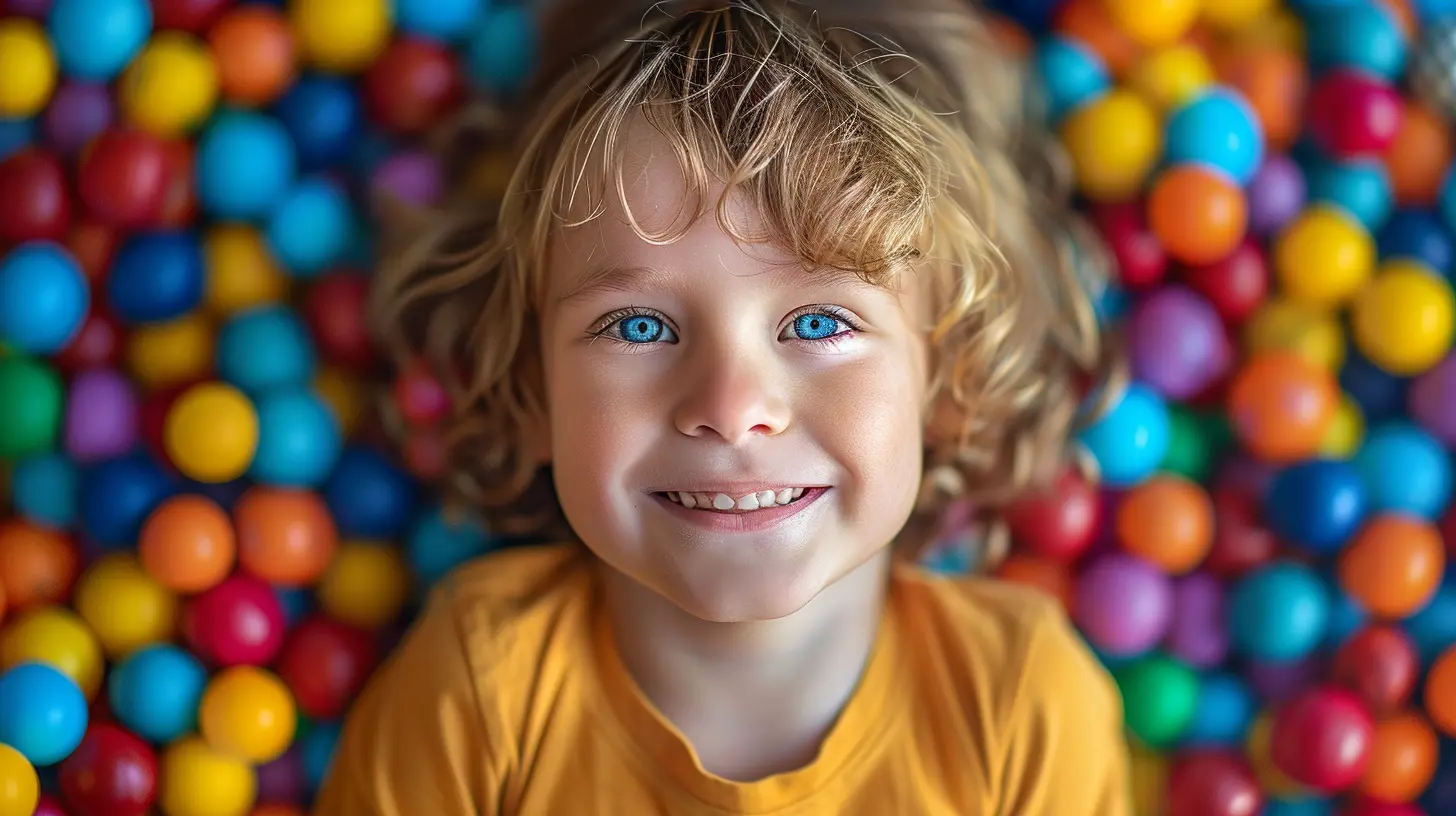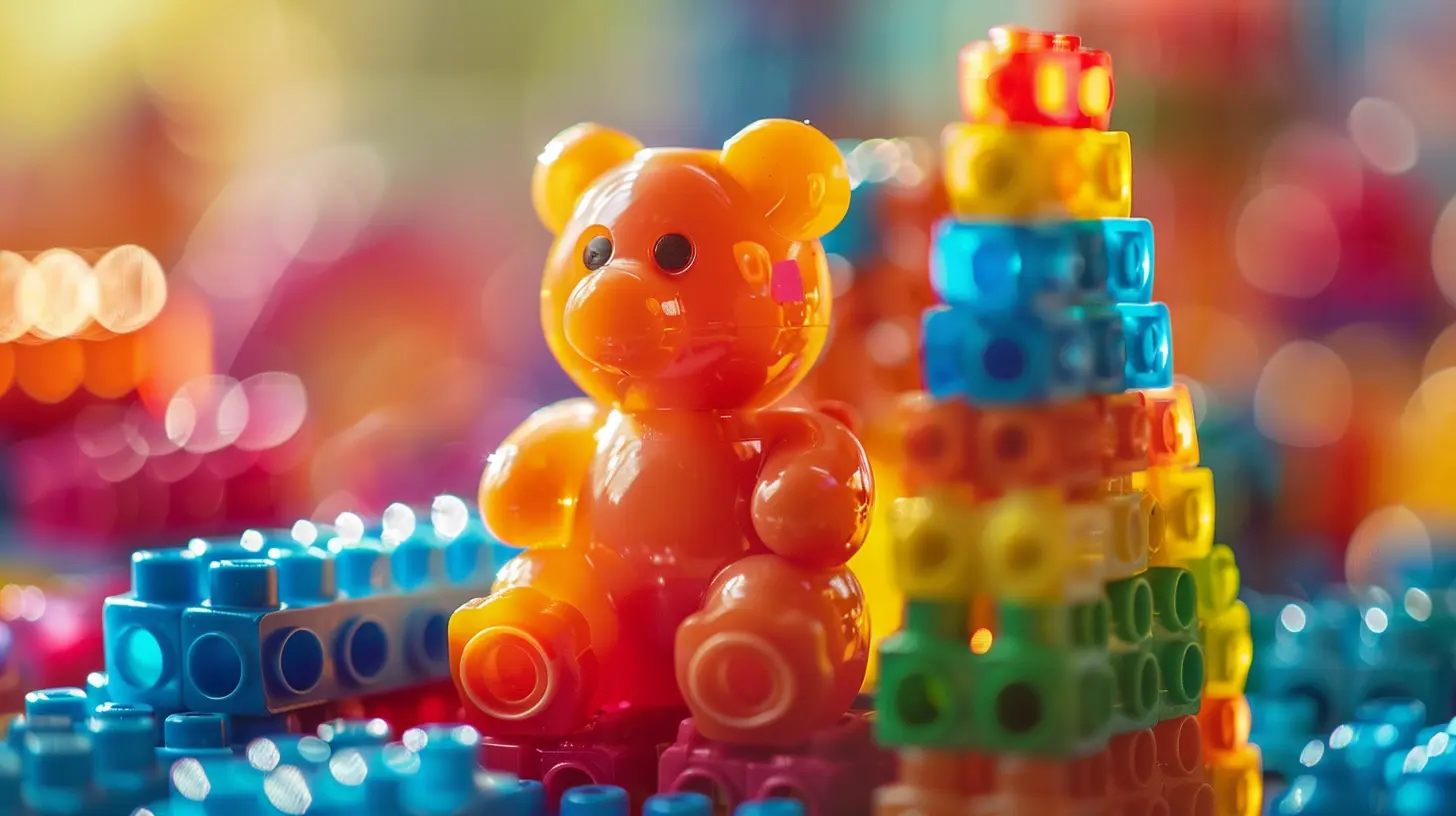The Importance of Play: Fun Activities for Children with Developmental Delays
17 July 2025
Play is more than just fun and games—it’s a crucial part of a child's development. For children with developmental delays, play becomes even more essential, serving as a bridge to learning, social skills, and emotional growth. But let’s be real—finding the right activities that are both enjoyable and beneficial can sometimes feel overwhelming.
Luckily, with a little creativity and patience, you can turn everyday moments into meaningful play experiences. Let’s dive into why play matters and some engaging activities that can make a world of difference for your child.

Why Is Play So Important for Children with Developmental Delays?
Children with developmental delays may struggle with motor skills, communication, or social interactions, but that doesn’t mean they can’t benefit from play. In fact, play is one of the best ways to help them improve these skills without them even realizing they’re “working.”Here’s why play should be a top priority:
- Encourages cognitive development – Play helps children learn problem-solving, cause and effect, and decision-making.
- Enhances motor skills – Activities that involve movement strengthen coordination, balance, and overall motor function.
- Boosts social interaction – Play allows children to practice turn-taking, sharing, and communication.
- Reduces anxiety and frustration – Playtime provides a safe space for self-expression and stress relief.
Now that we know why play is so crucial, let’s look at some fun activities that can support your child’s development while keeping them engaged.

Sensory Play: Engaging the Senses
Children with developmental delays often benefit from sensory play, which stimulates their senses—touch, sight, sound, smell, and even taste. These activities help improve focus, coordination, and emotional regulation.1. Sensory Bins
Fill a plastic container with materials like rice, beans, or kinetic sand and hide small toys inside. Let your child dig in, using their hands or scoops, to explore different textures while searching for hidden treasures.2. Water Play
A simple bowl of water, cups, and sponges can turn into hours of fun! Water play improves hand-eye coordination and fine motor skills while keeping things mess-free (mostly).3. Playdough Time
Squishing, rolling, and cutting playdough strengthens little hands while fostering creativity. Add in cookie cutters, rolling pins, or even small beads for extra fun!
Movement-Based Activities: Building Strength and Coordination
Physical play helps children with developmental delays improve their movement, balance, and muscle strength. Plus, it's a great way to burn off energy!4. Obstacle Course
Set up a mini obstacle course at home using pillows, tunnels, or stepping stones. Encourage your child to crawl, jump, and balance through each section—this helps with coordination, strength, and following instructions.5. Animal Walks
Ask your child to walk like a bear, hop like a frog, or waddle like a penguin. This fun activity strengthens muscles and improves body awareness.6. Yoga for Kids
Simple yoga poses like "Tree Pose" or "Downward Dog" can help with balance and flexibility while promoting relaxation. Try doing the poses together to make it more enjoyable!
Communication and Social Play: Encouraging Interaction
Children with developmental delays may find social interaction challenging, but play can offer the perfect opportunity to develop these skills in a fun, low-pressure way.7. Pretend Play
Set up a make-believe shop, restaurant, or doctor’s office. Encourage your child to take turns being the customer, cashier, or doctor, helping them practice conversation skills.8. Sing-Along Games
Songs with hand movements—like "Itsy Bitsy Spider" or "Wheels on the Bus"—promote language development and motor coordination while keeping kids engaged.9. Turn-Taking Board Games
Games like "Candy Land" or simple matching card games teach patience, turn-taking, and how to follow rules in a fun environment. Choose games with visual cues to make them more accessible.Fine Motor Skill Activities: Strengthening Little Hands
Fine motor skill development is essential for tasks like writing, buttoning clothes, and using utensils. These activities help strengthen those tiny muscles.10. Sorting and Stacking Games
Have your child sort objects by color, shape, or size using tongs or tweezers. This helps with hand control and coordination.11. Stickers and Puzzles
Peeling and placing stickers or putting together large-piece puzzles can be both calming and beneficial for improving fine motor skills.12. Bead Stringing
Threading beads onto a string or pipe cleaner strengthens fingers and enhances concentration. Use bigger beads for toddlers and smaller ones for older kids to adjust the difficulty.
Outdoor Play: Fresh Air and Fun
Never underestimate the power of outdoor play! It provides a sensory-rich environment while allowing kids to explore, move, and socialize.13. Sandbox Adventures
Playing in the sand strengthens fine motor skills while encouraging creativity—whether they’re digging tunnels, filling up buckets, or making sandcastles.14. Bubble Chasing
Blowing and popping bubbles helps with breath control, hand-eye coordination, and tracking moving objects. Plus, who doesn’t love bubbles?15. Nature Walks
Going for a nature walk and collecting leaves, rocks, or flowers can be a great sensory experience while encouraging curiosity about the environment.Tips for Making Playtime More Effective
Playing with your child should feel natural, not forced. Here are some simple ways to make the most of playtime:- Follow their lead – Let your child choose activities that interest them; they’ll be more engaged that way.
- Keep it short and sweet – Some children may have shorter attention spans, so start with a few minutes and gradually increase the time.
- Celebrate little victories – Whether it’s stacking three blocks or saying a new word, praise their efforts!
- Be patient – Progress may take time, but every small step counts.
Final Thoughts
At the end of the day, play is one of the best ways to help children with developmental delays grow and thrive. The best part? It doesn’t have to be complicated or expensive—sometimes, the simplest activities create the biggest impact.So, grab some toys, head outside, or get a little messy with sensory play. Every moment spent playing is an opportunity for growth, learning, and, most importantly, fun!
all images in this post were generated using AI tools
Category:
Special NeedsAuthor:

Noah Sawyer
Discussion
rate this article
2 comments
Zevros McMahon
Play is not just fun; it's a vital part of growth and connection for children with developmental delays. Engaging in playful activities fosters creativity, boosts confidence, and strengthens bonds. Embrace these moments with your child—they are stepping stones to their development and your shared joy! Keep playing!
November 27, 2025 at 3:22 AM

Noah Sawyer
Thank you for highlighting the essential role of play in supporting growth and connection for children with developmental delays. Embracing playful moments truly nurtures their development and strengthens our bonds. Let’s keep celebrating these important experiences!
Deborah Martin
Empowering growth through joyful play!
July 25, 2025 at 2:53 PM

Noah Sawyer
Thank you! Play is indeed essential for fostering growth and joy in children with developmental delays.


